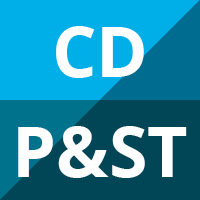
Anticoagulation for cerebral venous sinus thrombosis
Abstract Background Treatment of cerebral venous sinus thrombosis with anticoagulants has been controversial. Anticoagulants may prevent new venous infarcts, neurologic deterioration and pulmonary embolism but may also promote haemorrhages. Objectives To assess the effectiveness and safety of anticoagulant therapy in patients with confirmed cerebral venous sinus thrombosis. Search methods We searched the Cochrane Stroke Group […]

Statins for acute ischemic stroke
Abstract Background Statins have been claimed to be effective in the acute phase of ischemic stroke. The potential positive actions of statins during an acute cerebrovascular ischemic event are two-fold: a neuroprotective effect, limiting damage and improving recovery; and a preventative effect on early recurrence. Objectives To quantify the potential benefits and harms of statins […]

Hands-on therapy interventions for upper limb motor dysfunction following stroke
Abstract Background Recent studies have attempted to disaggregate therapeutic intervention packages by looking at the impact of structure and process characteristics of environment upon outcome. However, what is commonly referred to as the ‘black box’ of therapy has yet to be comprehensively unpacked. This failure to analyse the components of therapy means that it remains […]

Non-pharmacological interventions for perceptual disorders following stroke and other adult-acquired, non-progressive brain injury
Abstract Background Stroke and other adult-acquired brain injury may impair perception leading to distress and increased dependence on others. Perceptual rehabilitation includes functional training, sensory stimulation, strategy training and task repetition. Objectives To examine the evidence for improvement in activities of daily living (ADL) six months post randomisation for active intervention versus placebo or no […]

Edaravone for acute intracerebral haemorrhage
Abstract Background Intracerebral haemorrhage (ICH) causes significant morbidity and mortality. Prognosis for ICH patients is poor. Edaravone may be safe and effective in reducing the risk of early death and improving long-term functional outcomes in survivors. Objectives To assess the safety and efficacy of edaravone for acute ICH. Search methods We searched the Cochrane Stroke […]

Water-based exercises for improving activities of daily living after stroke
Abstract Background Water-based exercises are used in rehabilitation and might help to reduce disability after stroke. Objectives To investigate the effect of water-based exercises for reducing disability after stroke. Search methods We searched the Cochrane Stroke Group Trials Register (last searched August 2010), the Cochrane Central Register of Controlled Trials (CENTRAL) (The Cochrane Library 2010, […]

Percutaneous vascular interventions for acute ischaemic stroke
Abstract Background Most disabling strokes are due to blockage of a large artery in the brain by a blood clot. Prompt removal of the clot with intra-arterial thrombolytic drugs or mechanical devices, or both, can restore blood flow before major brain damage has occurred, leading to improved recovery. However, these so-called percutaneous vascular interventions can […]

Antithrombotic drugs for carotid artery dissection
Abstract Background Extracranial internal carotid artery dissection (eICAD) is a leading cause of stroke in younger patients. Objectives 1. To determine whether, in patients with eICAD, treatment with anticoagulants, antiplatelet agents or control was associated with a better functional outcome. 2. To compare, among patients treated with either anticoagulants or antiplatelet agents, the risk of […]

Botulinum toxin for shoulder pain
Abstract Background Recent evidence suggests an anti-nociceptive effect of botulinum toxin. Objectives To compare the efficacy and safety of botulinum toxin in comparison to placebo or other treatment options for shoulder pain. Search methods We searched the Cochrane Central Register of Controlled Trials (CENTRAL) (The Cochrane Library), Ovid MEDLINE, CINAHL (via EBSCOhost), Ovid SPORTDiscus, EMBASE […]

Physical methods for preventing deep vein thrombosis in stroke
Abstract Background Deep vein thrombosis (DVT) and resulting pulmonary embolism (PE) are important complications of stroke. Physical methods to reduce the risk of DVT and PE, such as graduated compression stockings (GCS) or intermittent pneumatic compression (IPC) applied to the legs, do not appear to be associated with any bleeding risk and reduce the risk […]

